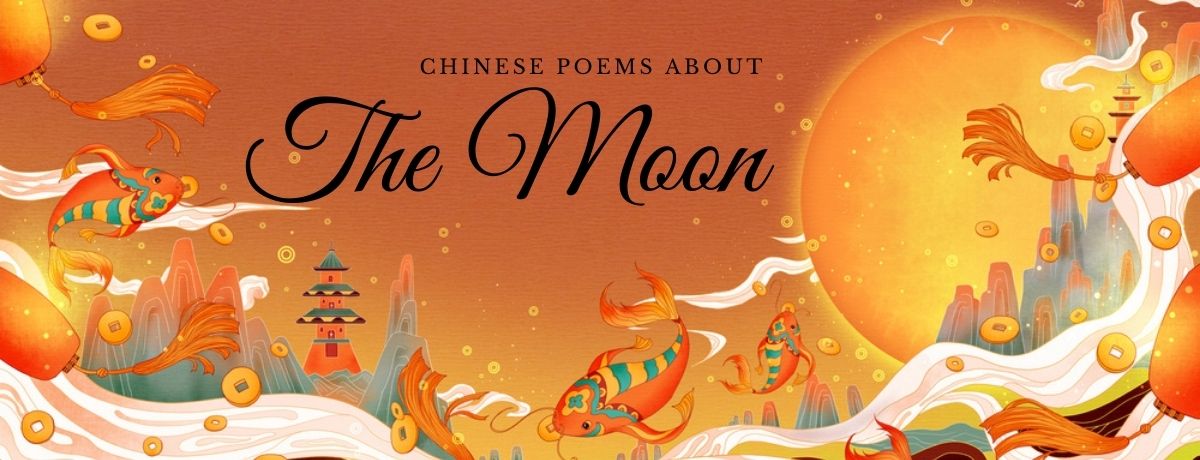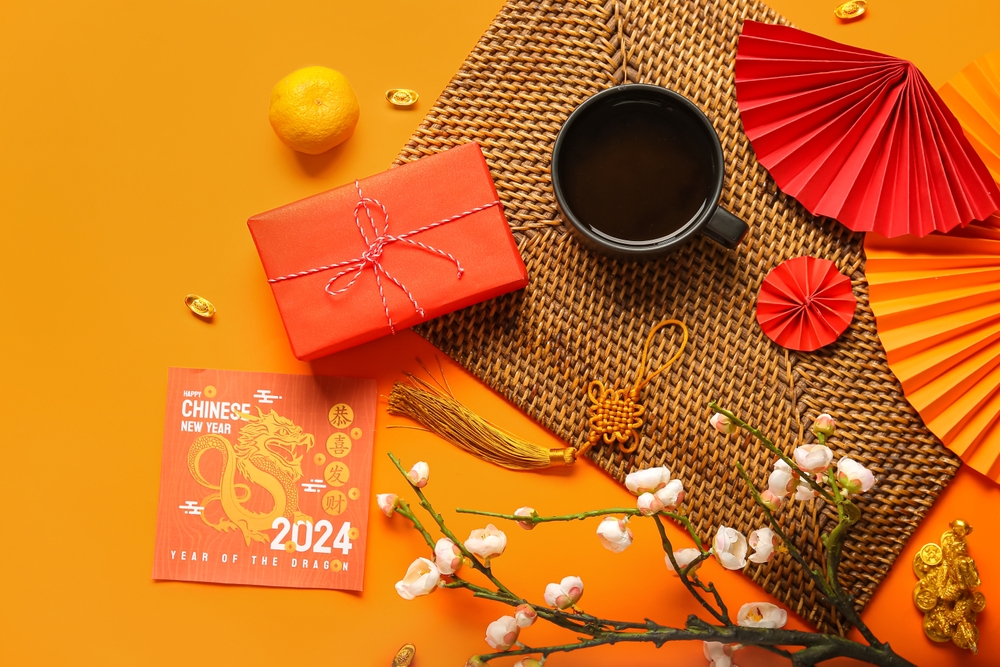Chinese poets have long revered the celestial. To mark the countdown to Mid-Autumn Festival, we’ve shared our 5 favourite Chinese poems about the moon.
The moon has special meaning in China, and is the subject of many legends in Chinese mythology. Chinese poems about the moon in particular were very common during dynastic China, with poets referencing the moon as far back as the Tang dynasty (618 to 907 A.D.).
In Chinese culture, the moon is commonly viewed as representing gentleness and brightness, with the full moon being a symbol of peace, prosperity, and family reunion. It is viewed by many as being a carrier of human emotions, with the ability to indicate a sense of belonging and family connection no matter where the family members may be.
One of the most important holidays on the Chinese calendar, the Mid-Autumn Festival (or zhongqiu – 中秋节 “Moon Festival”), takes place on the 15th day of the 8th month in the Lunar calendar, when the moon is supposedly the fullest, and is known for being a time for family reunion. The origins of the festival derive from the custom of moon worship, and even to this day, it is expected for families to gather together and enjoy the view of the moon together to mark the occasion. Given the struggle so many have faced in reuniting with their families lately, it seems the right time to refamiliarize ourselves with some classic Chinese poems about the moon.
Keep scrolling to discover our favourite Mid-Autumn moon poems to read aloud amongst or in memory of your loved ones this year.
Ancient Chinese poems about the moon
“Drinking Alone Under the Moon” by Li Bai (English translation)
From a pot of wine amid the flowers, I drink alone beneath the moonshine without a partner.
Raising my cup, I invite the moon and turn to my shadow which makes us three.
The moon cannot understand my enjoyable drinking, and my shadow only follows silently wherever I go.
The moment with the moon and shadow, I take the opportunity to have a joyous time until the end of spring.
I sing and the moonlight lingers, I dance and my shadow scattered.
Sharing cheer when I am awake, separating our ways when I am drunk.
Make our friendships out of the secular world forever; meet next time in the sky together.
《月 下 独 酌》 李 白 (Original version)
花 间 一 壶 酒,独 酌 无 相 亲。
举 杯 邀 明 月,对 影 成 三 人。
月 既 不 解 饮, 影 徒 随 我 身。
暂 伴 月 将 影, 行 乐 须 及 春。
我 歌 月 徘 徊, 我 舞 影 零 乱。
醒 时 同 交 欢,醉 后 各 分 散。
永 结 无 情 游, 相 期 邈 云 汉。
About the poem: This poem is talking about celebrating, spring, drinking wine and achieving spiritual awareness. Li Bai leaves the readers wondering if he’s celebrating life or if he’s lonely.
“Prelude to Water Melody” by Su Shi (Translated version)
Men have sorrow and joy; they part or meet again;
The moon is bright or dim and she may wax or wane.
There has been nothing perfect since the olden days.
So let us wish that man May live as long as he can!
Though miles apart, we’ll share the beauty she displays.
《水調歌頭》 苏轼 (节录) (Original version – Excerpt)
人有悲欢离合,
月有阴晴圆缺,
此事古难全。
但愿人长久,
千里共婵娟。
About the poem: Su Shi had been missing his brother who he had not seen in 5 years, since both Su Shi and his brother were government officials in different cities. Su Shi was gazing at the moon and thinking of his brother as well as the ups and downs of his life before writing this poem.
“Quiet Night Thought” (Translated version)
Bright moonlight before my bed;
I suppose it is frost on the ground.
I raise my head to view the bright moon,
then lower it, thinking of my home village.
《靜夜思》 李 白 (Original version)
床前明月光,疑是地上霜。
舉頭望明月,低頭思故鄉。
About the poem: This poem perfectly captures the feeling of being homesick, Li Bai uses the moon to solidify the distance from his home. What is explored in this poem can still resonate with people now. This is why “Quiet night thought” is one of Li Bai’s most famous poems.
“Looking at the Moon and Thinking of One Far Away” by Zhang Jiuling
The moon, grown full now over the sea,
Brightening the whole of heaven,
Brings to separated hearts
The long thoughtfulness of night.
It is no darker though I blow out my candle.
It is no warmer though I put on my coat.
So I leave my message with the moon
And turn to my bed, hoping for dreams.
《望月怀远》 张九龄 (Original Version)
海上生明月,天涯共此时。
情人怨遥夜,竟夕起相思。
灭烛怜光满,披衣觉露滋。
不堪盈手赠,还寝梦佳期。
About the poem: This poem explores the idea that the moon is constant. It is the natural resource that can light up our world and can heat us in the winter. We are able to look up at the moon and understand that everything is alright.
“A Night-Mooring at Maple Bridge” by Zhang Ji (Translated version)
While I watch the moon go down, a crow caws through the frost;
Under the shadows of maple-trees a fisherman moves with his torch;
And I hear, from beyond Su-chou, from the temple on Cold Mountain,
Ringing for me, here in my boat, the midnight bell.
《枫桥夜泊》 张继 (Original Version)
月落乌啼霜满天,江枫渔火对愁眠。
姑苏城外寒山寺,夜半钟声到客船。
About the poem: The poet is woken up from a troubled sleep. He is in a boat moored on a canal by a small bridge called Maple Bridge. The poet expresses that when the moon falls it gets cold and distressing, almost like you have to go back to the real world as soon as the moon falls.
We hope these Mid-Autumn moon poems provide some inspiration for you this Lantern Festival. Which is your favourite Chinese poem about the moon?
Similar articles:
Subscirbe our other blog articles and company news:






